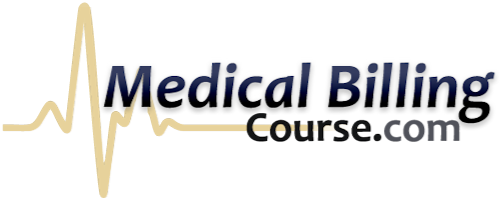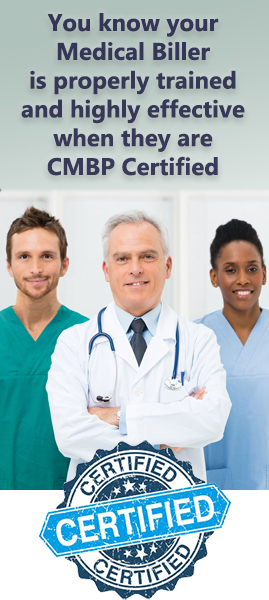- 08/22/2025
- Posted by: Medical Billing Course
- Categories: Medical Billing Career, Medical Billing Course, Medical Billing Employment

The healthcare system relies on skilled professionals to manage its complex financial side, and medical billing continues to stand out as a rewarding career choice.
The medical billing career outlook has never been more promising.
As the healthcare sector expands and embraces digital transformation, there’s a growing demand for trained individuals who can ensure providers get paid accurately and on time.
Whether you’re just starting out, looking for remote work flexibility, or planning a long-term career change, understanding where the field is heading can help you plan with confidence.
In this guide, we’ll break down job growth, regional demand, emerging industry trends, and what employers are looking for in new billers.
You’ll get data-backed insights on salaries, skill requirements, and the best next steps for building a future-proof career in this critical part of healthcare administration.
Exploring the Medical Billing Employment Forecast
Medical billing is a field on the rise, thanks to healthcare industry expansion and increasing complexity in insurance claims processing.
Here’s what the numbers and trends say about medical billing job growth, job market, and the employment forecast:
Strong National Growth
According to the U.S. Bureau of Labor Statistics (BLS), jobs for medical records and health information technicians (which includes most medical billing roles) are projected to grow 9% from 2022 to 2032, faster than the average for all occupations.
This translates to about 15,000–16,700 job openings each year as organizations expand, current workers retire, or move to other roles.
Competitive Wages and Rising Demand
The national median annual wage for these positions was $47,180 in May 2023, but salaries can go higher in states with strong healthcare infrastructure, such as California or New York, where averages may exceed $64,000 (wage data).
As more providers adopt electronic health records and face changing insurance regulations, demand for skilled billers is expected to stay strong, especially in hospitals, outpatient centers, and remote positions.
Outlook for Related Roles
For those with additional training or credentials, roles like health information technologist or medical registrar are projected to grow even faster, 16% over the next decade, with a median annual wage of $67,310.
This upward trend reflects a broader need for professionals who can bridge healthcare, compliance, and technology.
If you’re searching for a stable career with clear paths for advancement, the medical billing demand is not only real, it’s set to increase, especially for those who keep their skills current and adapt to industry trends.
Industry Trends & the Future of Medical Billing
The evolution of healthcare delivery and payment models is transforming the medical billing job market, and professionals must adapt to stay relevant in this shifting landscape.
Automation, AI, and Revenue Cycle Management Tools
Advancements in automation and AI are reshaping the medical billing landscape.
Automated claim scrubbing, coding validation, and predictive analytics have become standard, reducing errors and streamlining collections.
In fact, leading hospitals now use AI-powered platforms to catch mistakes before claims are sent, cutting down denials and speeding up reimbursement.
In large revenue cycle management (RCM) firms, robotic process automation has led to measurable cost savings and efficiency, with Omega Healthcare reporting a reduction of more than 40% in manual processing time.
Telehealth & Remote Billing
Telehealth is no longer an exception, it’s a core part of healthcare delivery.
McKinsey & Company estimates that telehealth utilization has stabilized at levels 38 times higher than before the pandemic.
Medical billers now need to manage telehealth-specific CPT codes, payer coverage differences, and interstate billing requirements.
As more providers and payers embrace virtual care, proficiency in telehealth billing will remain a top skill.
Value-Based Care and Quality Reporting
The movement from fee-for-service to value-based care means billers must track bundled payments, shared savings, and quality-related incentives.
According to CMS, the federal push for value-based payments continues to expand, requiring billing teams to understand quality metrics and new forms of reporting.
This trend increases demand for analytical skills and flexible workflow management.
Skills for the Future
The future of medical billing is about more than data entry. It requires software proficiency, problem-solving, and adaptability to rapidly changing payer rules.
Billers who combine traditional skills with analytics, telehealth expertise, and an understanding of regulatory change will be in the highest demand.
Top Regions and Remote Trends in Medical Billing Careers

Understanding both regional differences and the rapid expansion of remote work is essential for anyone navigating the evolving medical billing job market.
Where you live, what credentials you hold, and your adaptability to remote workflows can all dramatically impact your earning power and job prospects.
State-by-State Demand and Salary Variations
The U.S. Bureau of Labor Statistics (BLS) highlights that states such as California, Texas, and New York consistently offer the highest concentrations of medical billing and health information technician jobs, with annual mean wages ranging from $53,000 to $67,000 in metropolitan areas like San Francisco, New York City, and Houston.
Demand is often greatest in urban hubs, driven by the presence of major healthcare systems and hospital networks.
However, regional salary data reveals further nuance.
According to reports, certified medical billers and coders in the Northeast and West out-earn peers in the South and Midwest by $5,000–$10,000 on average.
Factors include cost of living, state insurance regulations, and the density of hospitals and outpatient clinics.
Some states, such as Massachusetts, Maryland, and Washington, also offer competitive wages and job density, often making them top choices for career advancement in medical billing.
Rural Access and Market Growth
While urban centers provide higher job concentrations, the medical billing employment forecast is now brightening for rural and suburban professionals as well.
Many healthcare organizations are actively recruiting outside their home states to address local workforce shortages and to tap into a national talent pool.
These trends make the profession increasingly accessible, regardless of location.
The Rise of Remote Medical Billing
Remote work has shifted from a pandemic necessity to an industry standard.
According to reports, approximately 65.7% of medical billing and coding professionals work fully remotely, while an additional 14.1% work in a hybrid (remote plus onsite) setting, reflecting a substantial shift toward remote work in the medical billing field since 2020.
Hospitals, RCM vendors, and telehealth practices are increasingly recruiting nationally, which has opened up opportunities for billers in regions that previously had few local jobs.
As per reports, the U.S. medical billing outsourcing market is growing at a CAGR of approximately 12.6% through 2030, fueled by provider demand for flexibility, compliance, and cost savings.
This rapid growth is expanding job access well beyond major cities, making it possible for billers in remote and suburban locations to land jobs with large hospital systems, private clinics, and even multi-state RCM firms.
Flexibility and Opportunity
This remote-first landscape offers unprecedented flexibility for working parents, career changers, and those seeking better work–life balance.
Remote medical billing jobs allow professionals to avoid lengthy commutes, relocate without losing employment, or combine billing work with other career or family obligations.
Many remote positions also offer competitive salaries, with Glassdoor reporting averages similar to in-office jobs.
Upskilling for the Remote Era
To stand out in this national market, billers must demonstrate strong medical billing software training, digital workflow fluency, and up-to-date knowledge of RCM tools and compliance.
Employers increasingly seek certifications and evidence of hands-on training.
Programs like Medical Billing Course offer a direct path to mastering remote-ready skills, such as secure electronic claims submission, telehealth billing compliance, and troubleshooting in cloud-based systems.
The structured, self-paced curriculum is tailored to meet the needs of both in-office and remote professionals, giving job seekers a critical edge in landing and thriving in high-demand roles.
Medical Billing Career Path Options and Essential Skills
A career in medical billing is rarely linear. Today’s entry-level biller may become tomorrow’s remote revenue cycle specialist, billing team lead, or even a business owner. Here’s how you can navigate the evolving medical billing career path options:
Common Career Paths
- In-Office Medical Biller: Starting in clinics, hospitals, or specialist practices, learning the essentials.
- Remote Medical Biller: Transitioning to work-from-home roles or joining national RCM firms.
- Revenue Cycle Analyst/Specialist: Focusing on claim management, process improvement, or denial reduction.
- Entrepreneur: Launching a billing consultancy or freelance billing business.
In-Demand Skills for the Future
- Coding Accuracy: Staying current with ICD-10, CPT, and HCPCS updates, plus payer-specific rules.
- Denial Management: Understanding root causes, appeal strategies, and using analytics to prevent revenue loss.
- Software Fluency: Mastering platforms that manage claims, analytics, telehealth billing, and interoperability.
- Soft Skills: Strong organization, communication, adaptability, and attention to regulatory details.
Building these skills often requires more than on-the-job learning.
Structured programs, like those from Medical Billing Course, offer up-to-date curriculum, practical workflows, and hands-on software practice.
This kind of preparation helps you adapt quickly as the industry and your career evolve.
Planning Your Next Step in the Medical Billing Career Path

The medical billing career outlook remains full of promise for those who invest in learning and skill development.
Industry data shows that job growth is steady, with employers increasingly seeking professionals who can keep pace with new technology, understand the latest medical billing industry trends, and excel in remote or in-office roles.
Success now depends on technical knowledge, adaptability, and a commitment to ongoing education.
Whether you are just starting out or looking to specialize in fields like denial management or telehealth, there are clear opportunities for advancement in every region.
From coding accuracy to digital workflow mastery, by focusing on skills that match today’s medical billing demand, you can take advantage of job growth and flexibility across the nation.
For those seeking a solid foundation, hands-on software practice, and up-to-date workflow guidance, a structured program like Medical Billing Course can provide the support and practical skills that employers value most.
Choosing to invest in certification and continuing education now is the best way to prepare for the future of medical billing and open new career pathways in this essential and expanding field.
Medical Billing Career FAQs: Job Growth, Salaries & SkillsFAQs
What is the current job outlook for medical billers?
The job outlook is strong, with the BLS projecting 9% growth from 2023 to 2033 and about 16,700 new jobs per year. Wages and opportunities are particularly good in states with large healthcare sectors.
How are technological advancements impacting the medical billing career?
Automation, AI, and better analytics are taking over routine billing tasks, but are also increasing demand for billers skilled in denial management, software, and tech troubleshooting.
Are there regional differences in medical billing job availability?
Yes, demand is highest in populous states like California, Texas, and New York, but remote work is making it easier to find jobs nationwide.
What skills are becoming more important for future medical billing careers?
The most valuable skills include coding updates, denial prevention, workflow management, and software fluency, plus adaptability to new tech and regulations.
Is the demand for remote medical billers increasing?
Absolutely. The shift to remote work and outsourcing is now a permanent part of the medical billing employment forecast. More organizations offer remote roles, and demand is growing.

